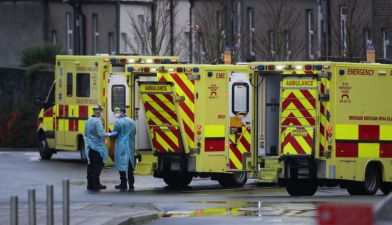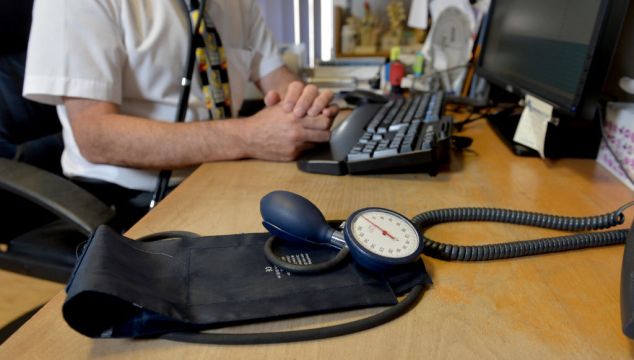A shortage of GPs is posing a significant risk to the Irish health system, a medical group has warned. A growing population with longer life expectancy is increasing demand for primary care at a time when "a significant proportion of older GPs" are due to retire.
“The life expectancy of the population in the Republic of Ireland is the longest in the EU,” says Dr Brendan O’Shea, the Irish College of General Practitioner's clinical lead for General Practice and Nursing. While this is a triumph, he says, it does affect the number of GPs needed to meet the population’s demands.
While populated parts of the State have seen GP practices closed their books to new patients, the shortages are also impacting more isolated areas, where a lack of infrastructure can also impact the provision of primary care.
Dr O’Shea says training could once again help alleviate the problem, if General Practice exposure was expanded in medical schools in addition to supporting regional training to reduce the focus on the big centres, like Dublin and Cork.
“There’s a good case to be made for shifting more medical undergraduate training into General Practice,” he says.
“In hospital settings, very often the teams have become extremely specialised, which is helpful, but in the course of one day in a GP setting a student could embrace psychiatry, obstetrics and gynaecology, chronic disease management, paediatrics, and sexual reproductive health.
“For these really bright, hard-working students, we feel that they take great energy and inspiration from it, and they also find that GP teams are friendly places.”
Despite the challenges facing the GP sector, Dr O’Shea says many of his colleagues are in favour of socialised medicine where “healthcare isn’t commoditised”, but if barriers to healthcare are to be removed the State must step up.
He says “there’s no possibility” that the expansion of free GP care announced as part of Budget 2023 can be met, given the extra pressure it would place on the already over-extended primary care system.
“Government has choices. Do you want to keep the barriers in place and jeopardise the progress of our longer life expectancy, which will ultimately cost future generations a lot more, or do you want to front load the investment with a relatively small payment?
“General Practice is a very small part of the overall health system in terms of cost, but it’s a big player in terms of impact.
“It’s a very ugly side to the Irish healthcare system that there are still very significant cost barriers. They should be removed, and it will cost to do it, but we really need to get on with it.”
GP training
Dr O’Shea, who is also an assistant adjuvant professor in Public Health and Primary Care at Trinity College Dublin, acknowledges that while GP training - which takes 11-14 years from entry into medical school - is an area of particular focus, it is a “long-term play” and more immediate measures can be taken to address the shortages.
“We can make more rapid progress by increasing the number of General Practice nurses,” Dr O’Shea says, adding this is a “vibrant” part of the health system.
“In the last five years, the level of work they’re undertaking, and the complexity of it, is simply getting bigger all the time, and they’re brilliant at it”.
He says these nurses are “incredibly versatile”, adding: “A high performing General Practice nurse can really cover a lot of a GP's job description.”
The ICGP has repeatedly called for the expansion of non-GP roles within General Practice and the establishment of multidisciplinary primary care teams, not just to build capacity, but also to “increase the extent to which more conditions could be treated at the community level, which is what people want and what they are comfortable with,” Dr O’Shea says.
Overseas recruitment
Another part of efforts to expand the capacity of General Practice has also been a joint-initiative by the ICGP and HSE to recruit doctors from overseas as part of the Non-EU Rural GP Initiative.
Some of us would certainly have reservations where a really affluent country like ours is taking doctors and nurses from low and middle-income countries
While Dr O’Shea believes this, in principle, “is a very important aspect of manpower planning that must be explored”, he warned it could be exploitive if done irresponsibly.
“Some of us would certainly have reservations where a really affluent country like ours is taking doctors and nurses from low and middle-income countries, which is fine for us, but that is a serious drain of essential skills and manpower for low and middle-income countries.
“It has very direct consequences for populations in those societies,” Dr O’Shea explains.

He adds: “Young international medical graduates have been sent into the secondary care system, and arguably they have been bereft of career progression, and they’ve worked in the less popular and less supported jobs.
“That’s not a good long-term situation – either for those doctors, or for those patients.
“If we are recruiting from abroad, it’s important that it’s very clear what we’re doing, and that the international medical candidates that we’re attracting are looked after and are brought into a functional system for a specific purpose, which should include their training.
“We need to be clear on whether or not what we’re doing can be ethically stood over and whether it poses a risk to populations, particularly rural populations, in low and middle-income countries where these doctors might otherwise be working.”







